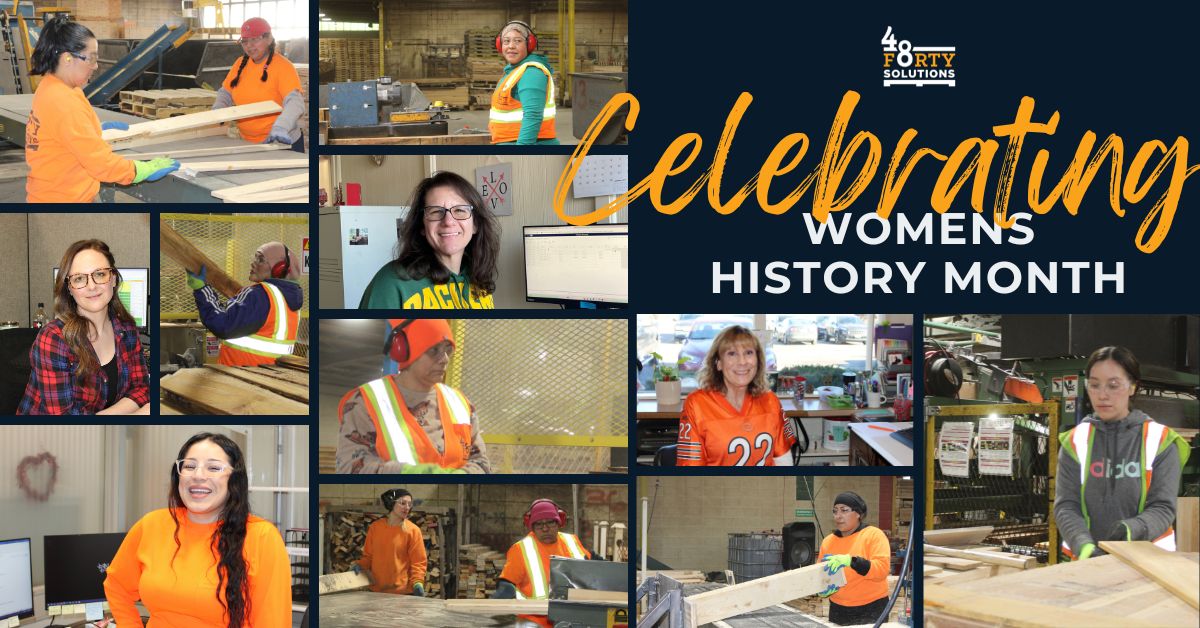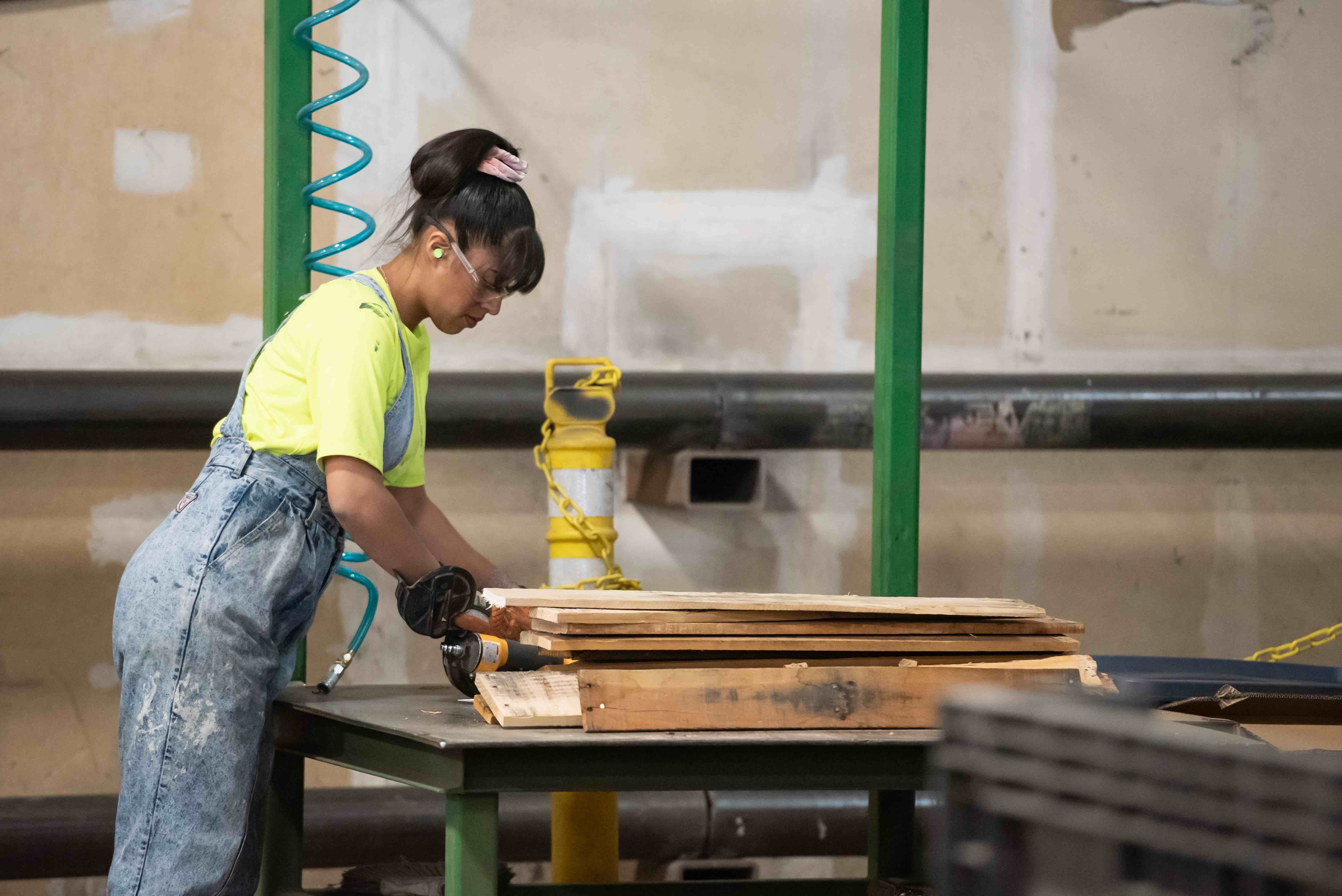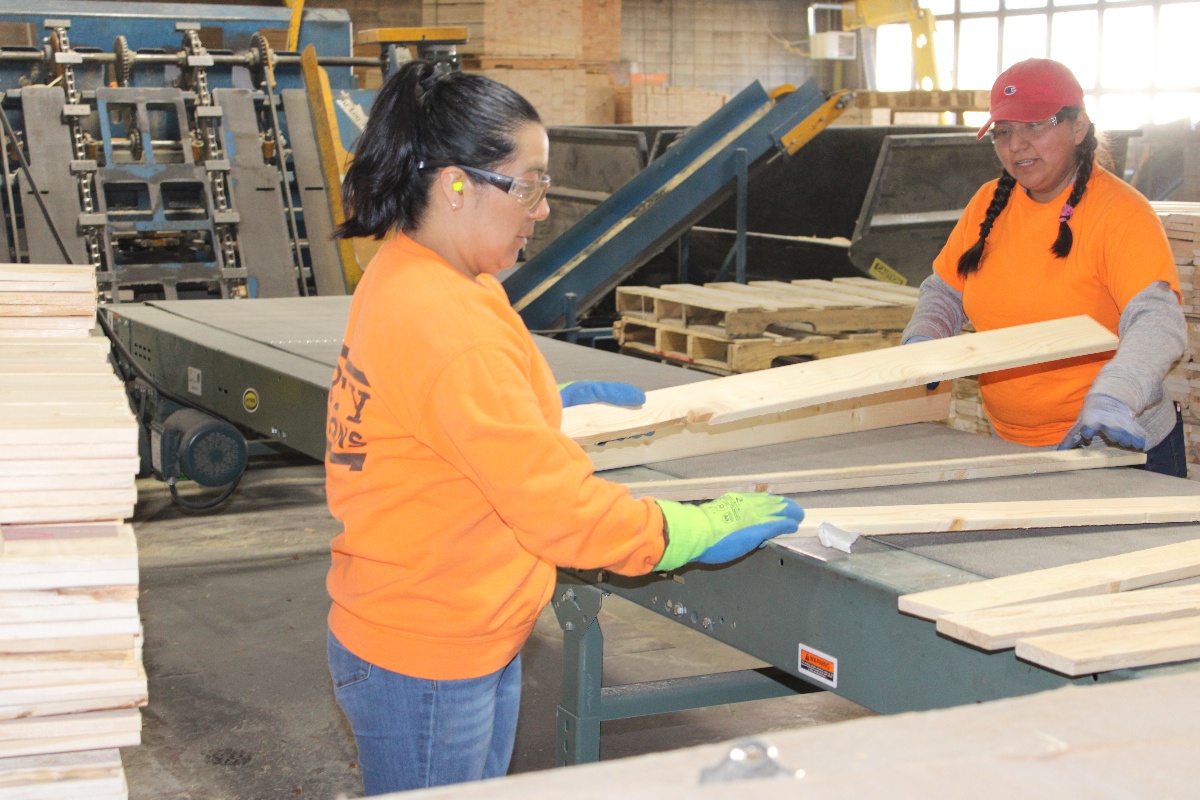At 48forty, we are committed to diversity in our workforce and expanding the role of women in the traditionally male-dominated supply chain industry. As part of that commitment, we encourage and champion the women in our facilities who are paving the way. We’re pleased to profile our McHenry, IL plant. The site is setting the example for inclusion in our company and across the pallet industry.

Breaking Ground: Celebrating Women in the Wood Pallet Industry
At 48forty, we are committed to diversity in our workforce and expanding the role of women in the traditionally male-dominated supply chain industry. As part of that commitment, we encourage and champion the women in our facilities who are paving the way.
We also champion our leaders and locations that are helping women overcome obstacles and succeed in traditionally male roles. Today we’re pleased to profile our McHenry, IL plant. The site is setting the example for inclusion in our company and across the pallet industry.
The Value of a Diverse Workplace:
“A diverse workplace sends a clear message to anyone that walks into our building that we value effort, quality of work, and an employee’s individual qualifications and abilities over all else,” said Robert Moore, general manager of 48forty’s McHenry, IL plant. “Having women in critical roles in our plant allows us to gather a broader perspective of what’s happening in the plant and how we can develop the most productive team possible.”

Celebrating Female Contributions:
The McHenry plant employs a total of 17 women working in roles as machine operators, line operators, and general laborers; positions traditionally held by men. “You can’t replace a woman’s perspective in the workplace,” Moore continued. The feedback we gain from our female employees helps us make the best possible decisions for our people and our plant every day.”
The Impact of Women in the Workplace:
Women bring a different approach to problem-solving in the workplace, often characterized by collaboration, attention to detail, a holistic view of operations, and a rigorous commitment to safety. These qualities are invaluable in an industry that demands adaptability and innovation to navigate the complexities of global trade and consumer demands.

Overcoming Stereotypes:
Despite the unique skills they bring to the workplace, Moore acknowledges that there has been a need, at times, to counter the belief of some employees that women do not belong in traditionally male roles at the plant. “Education and support are our biggest tools,” said Moore.
“Addressing behavior that doesn’t align with our core values is of primary importance. We do this by pointing to the countless success stories within our plant, our company, and beyond as evidence that diversity in the workplace is one of the biggest indirect influences on overall productivity. We must refuse to allow any one person’s views or behavior to become a barrier to that broader goal of improving our productivity and performance as a plant.”
The plant's proactive strategies to attract and hire more women into traditionally male-dominated roles reflect a commitment to diversity and inclusion. By showcasing the success stories of women already within the plant, candidates are given firsthand insight into the opportunities available, breaking down barriers and challenging stereotypes about women in manufacturing environments.
“Working in a niche industry like pallet manufacturing makes it difficult to find good talent,” he continued. “Reducing your talent pool by discounting women is just creating a self-imposed obstacle. Not everyone will be successful in our industry, but those who rise to the top do so not because of their gender, race, or nationality. They do so because of their work ethic and willingness to adapt to a challenging but rewarding industry.”
